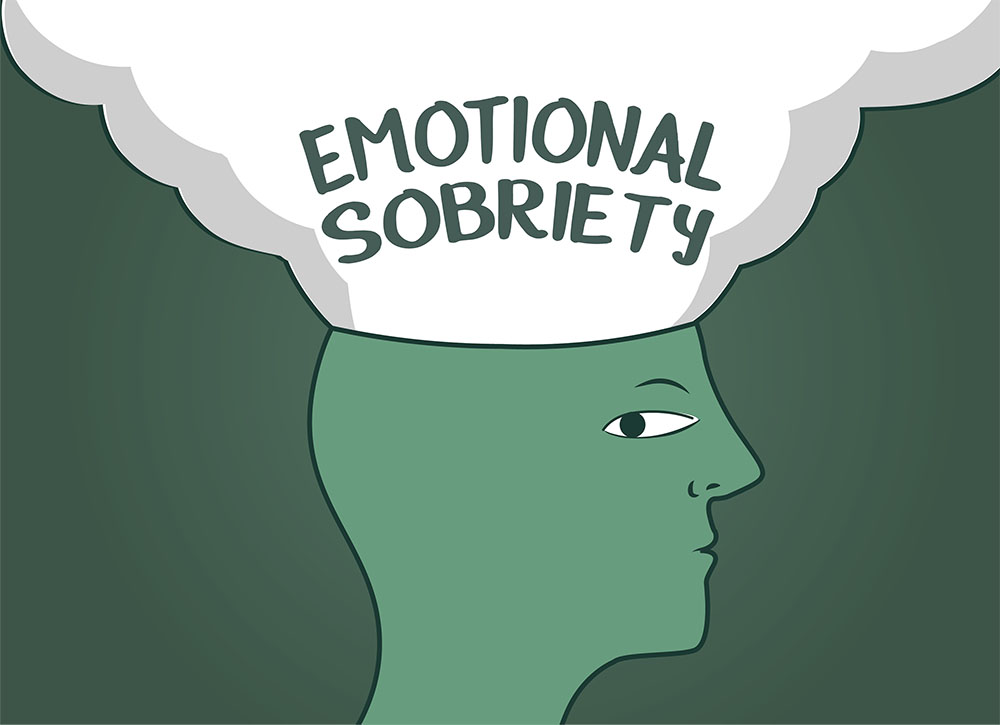Emotional Sobriety: The Next Step After Getting Sober
When most people think about recovery, they think about the day the drinking or using stops. That first clean day, that decision to change—it’s monumental. But anyone who’s walked the road of recovery knows that staying sober and living sober are two very different things.
Once the physical addiction fades and the chaos quiets down, a deeper challenge often emerges: learning how to manage emotions, relationships, and life itself without the familiar escape of substances. This is where emotional sobriety begins—and where real freedom starts.
At Sober Lifestyle Coaching, Tommy Caudill and his team help people move from simply being abstinent to becoming emotionally balanced, resilient, and fully alive. This post explores what emotional sobriety really means, why it’s so essential, and how to cultivate it day by day.
1. What Is Emotional Sobriety?
Emotional sobriety is the ability to experience life—its highs, lows, and everything in between—without being ruled by your feelings or reactions. It’s the next stage of recovery, where you move beyond avoiding a drink or a drug and start mastering your inner world.
In the words of recovery pioneer Bill W., “Real sobriety is emotional sobriety.” He realized that even with years of abstinence, emotional instability could create misery—and eventually lead back to relapse.
Emotional sobriety means:
- Responding, not reacting, to stress.
- Feeling emotions without being controlled by them.
- Maintaining internal balance even when life feels chaotic.
- Accepting yourself and others, rather than trying to control everything.
As Tommy often reminds clients, “You can take the substance away, but if you don’t heal the emotions underneath, you’re still in chains.
2. Why Emotional Sobriety Matters in Long-Term Recovery
In early recovery, the primary focus is on physical sobriety—detoxing, avoiding triggers, finding meetings, and establishing routine. But once the external structure is in place, the deeper emotional and psychological patterns surface.
That’s when people often say, “Now the real work begins.”
Without emotional sobriety:
- Stress leads to impulsivity.
- Anger or resentment turns into isolation.
- Loneliness or boredom triggers cravings.
With emotional sobriety:
- You notice feelings early and handle them in healthy ways.
- You communicate instead of shutting down.
- You build trust, purpose, and long-term stability.
Tommy describes it this way:
“Emotional sobriety is what allows recovery to feel good, not just look good. It’s the bridge between surviving and thriving.”
3. Understanding the Emotional Landscape of Early Sobriety
When someone first gets sober, emotions can feel overwhelming. Years of suppression suddenly flood the surface: guilt, shame, grief, fear, anger, sadness, and even joy.
These feelings can be confusing because they’re raw and unfamiliar. The key is to remember that feeling isn’t failure—it’s healing.
Common emotional challenges in early recovery include:
- Anxiety: Learning to live without a numbing agent exposes raw nerves.
- Depression: The brain’s dopamine systems take time to rebalance.
- Resentment: Old wounds and perceived injustices resurface.
- Guilt and Shame: Facing the damage done during addiction can feel heavy.
Tommy coaches clients to normalize these emotions rather than resist them.
“You’re not broken for feeling. You’re finally feeling again—and that’s progress.”
4. Emotional Intelligence: The Foundation of Emotional Sobriety
Emotional sobriety and emotional intelligence (EQ) go hand in hand. EQ is the ability to recognize, understand, and manage your own emotions—and the emotions of others.
In coaching sessions, Tommy focuses on building EQ as a daily practice through four key skills:
- Self-Awareness
Notice what you feel and why.
Example: “I’m not angry about the meeting running late—I’m afraid of losing control.”
- Self-Regulation
Pause before reacting. Learn to breathe, step back, and make calm choices.
- Empathy
See situations from others’ perspectives. This reduces resentment and builds connection.
- Social Skills
Communicate clearly and authentically. Healthy relationships are essential to long-term sobriety.
Tommy often reminds clients that emotions aren’t the enemy; they’re data.
“Your feelings are messengers, not dictators. They’re there to tell you something about your needs.”
- Common Emotional Triggers—and How to Manage Them
Even with time in recovery, certain triggers can destabilize emotions and put sobriety at risk. Awareness is the first defense.
Trigger 1: Stress and Overcommitment
Trying to make up for lost time can lead to burnout.
Tool: Simplify your schedule. Set boundaries. Say “no” without guilt.
Trigger 2: Loneliness
Isolation is relapse fuel.
Tool: Stay connected. Attend meetings, call a sponsor, or reach out to a recovery coach.
Trigger 3: Relationships
Romantic or family stress can reopen old wounds.
Tool: Practice honest communication and detach with love when necessary.
Trigger 4: Unrealistic Expectations
Expecting perfection in yourself or others leads to disappointment.
Tool: Embrace progress over perfection. Celebrate small wins.
Trigger 5: Success
Ironically, good times can be dangerous when overconfidence sets in.
Tool: Stay humble and grounded. Continue working your recovery plan.
Tommy teaches clients to anticipate triggers instead of fearing them. “Awareness gives you choice,” he says. “You can’t control feelings, but you can always control your response.”
- Tools for Building Emotional Sobriety
Developing emotional balance takes daily effort. Here are some of the practical tools Tommy Caudill integrates into his coaching programs:
Daily Check-In
Ask yourself:
- What am I feeling right now?
- What do I need?
- Who can I talk to about it?
Journaling
Writing turns chaos into clarity. Even five minutes of journaling can transform a trigger into insight.
Mindfulness and Breathwork
These techniques train your nervous system to pause before reacting—crucial for handling anger or anxiety.
Exercise and Nutrition
Physical health directly impacts mood and energy. Movement releases tension and boosts serotonin.
Gratitude Practice
List three things you’re grateful for daily. Gratitude shifts your focus from what’s missing to what’s working.
Sober Companionship, Coaching and/or Therapy
Accountability keeps emotions in check. Working with a professional sober companion, sober coach, or a licensed therapist provides perspective and structure.
As Tommy says, “Consistency is more important than intensity. Do small things daily and your emotional balance will grow stronger over time.”
- The Role of Community and Connection
No one builds emotional sobriety alone. Connection transforms recovery from isolation into empowerment.
Tommy encourages clients to:
- Join peer support groups or alumni programs.
- Engage with mentors or accountability partners.
- Attend recovery-focused events or retreats.
- Be of service—helping others reinforces your own growth.
“The moment you think you’ve got this on your own, that’s when you need people the most,” Tommy reminds clients.
Emotional balance grows through shared experiences. When you see others navigate similar struggles, you realize you’re part of something bigger than your own emotions.
- When Emotions Become Overwhelming
Even with strong emotional tools, life can hit hard: loss, trauma, financial stress, or health issues can trigger old coping mechanisms.
If you feel yourself slipping into anger, numbness, or despair, reach out immediately.
Recovery doesn’t mean you handle everything perfectly—it means you ask for help faster.
Tommy advises clients to keep a Recovery Emergency Plan:
- Call your sponsor, therapist, or coach.
- Attend a meeting within 24 hours.
- Share openly about what’s going on.
- Get rest, hydration, and food.
- Do not isolate.
The ability to seek help when you’re overwhelmed is the ultimate act of emotional strength.
- The Payoff: Living Life on Life’s Terms
When you practice emotional sobriety consistently, the benefits ripple across every area of life:
- Relationships become more stable and authentic.
- You handle stress with confidence rather than panic.
- You feel joy without fear that it will disappear.
- You gain self-respect, integrity, and purpose.
You begin to realize that recovery isn’t about avoiding pain—it’s about learning how to walk through it with grace and clarity.
Tommy sums it up simply:
“When you master emotional sobriety, life doesn’t have to get easier—you just get stronger.”
- Practical Steps to Strengthen Emotional Sobriety Today
If you’re ready to deepen your recovery beyond abstinence, start with these five steps today:
- Start a Morning Ritual.
Begin each day with quiet reflection—prayer, meditation, or reading a recovery book. - Pause Before You React.
Count to five before responding to conflict. This single skill prevents countless regrets. - Talk Through Your Triggers.
Share instead of stuffing emotions. A sponsor, coach, or trusted friend can help reframe the situation. - Stay Curious About Your Feelings.
Instead of judging them, ask what they’re trying to teach you. - Recommit Daily.
Emotional sobriety is a practice, not a destination. Each morning, choose to grow.
Final Thoughts: The Freedom of Feeling Everything
Getting sober frees your body; becoming emotionally sober frees your soul. It’s the difference between white-knuckling it and living with genuine peace.
Emotional sobriety allows you to experience life fully—joy and pain, success and struggle—without needing to escape it. It’s what turns sobriety from survival into transformation.
If you’re ready to take that next step, Sober Lifestyle Coaching can help. With personalized coaching, accountability, and emotional development tools, Tommy Caudill guides clients toward lasting balance, resilience, and authentic joy. Contact Tommy today to begin the best part of your life.









